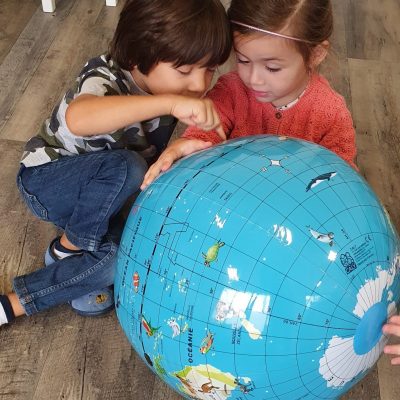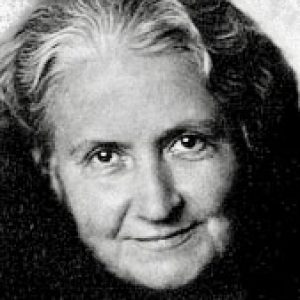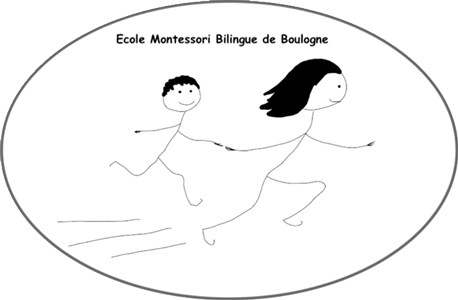emb boulogne
pedagogy
It is very important to us, to work everyday, respecting the fundamentals of
Montessori education. Our values : care, respect and attention.
partage et bonne humeur !

MONTESSORI PEDAGOGY
FUNDAMENTAL PRINCIPLES
Each child is a unique person with creative potential, the willingness to learn and the right to be treated with respect as an individual.
Children are deeply affected by society and their immediate surroundings; for this reason it is important to create an environment in harmony with the natural development of the child.
Children should have the freedom to work and move around, within a defined framework, allowing them to feel both empowered and part of a group.
Montessori materials help children explore and master their environment through activities that promote the development of their personality.
Children are encouraged to work at their own pace, either individually or in cooperation with others.
Mixed age groups provide opportunities for children to develop their social skills within a harmonious community.
Children are observed continually by educators, either individually or in groups, in order to promote their development and learning.
SENSITIVE PERIODS
Maria Montessori based her pedagogy on what she defined as sensitive periods. Sensitive periods are “developmental windows of opportunity during which the child can learn specific concepts more easily and naturally than at any other time in their lives.”
During these periods, the child has special sensitivities which facilitate learning in particular fields. These easy and spontaneous learning abilities are fleeting.
CONCENTRATION AND ATTENTION
Dans une ambiance Montessori «l’esprit absorbant» de l’enfant est nourri à travers un matériel sensoriel adapté.
Its manipulation allows children to discover the environment through their five senses, as well as to fix their attention and develop their ability to concentrate. Individual work of concentration leads to social awakening and peace. The child goes towards others with a calm mind.
THE ROLE OF THE EDUCATOR
Maria Montessori put forward “a new attitude of the educator” whose role is to reveal the potential within each child and help him to develop and fulfil himself through his work. The educator intervenes only if necessary. After careful observation of the child and the environment, the material is presented individually, the educator is a guide for the child.

MARIA MONTESSORI
THE STORY OF MARIA MONTESSORI AND HER PEDAGOGY
MARIA MONTESSORI (1870-1952) was the first female doctor in Italy, graduating in 1897. She completed her training with studies in philosophy and psychology and became professor of anthropology at the Royal University of Rome in 1904.
She campaigned throughout her life for the international recognition of children and their rights.
Elle s’occupe tout d’abord des enfants mentalement handicapés, et ses observations l’amènent vers les travaux de Jean Itard et Édouard Séguin, deux psychiatres français renommés. Elle comprend très vite l’importance du mouvement et du développement sensoriel pour la construction de l’intelligence de l’enfant.
She discovered the different phases of a child's development, and in particular the importance of the “sensitive periods”. She set out to develop educational material for these children and achieved remarkable results with those who were seen by everyone as hopeless cases.
In fact, they performed better than other children attending traditional schools, which led her to believe that her methods could be successfully applied to all children.
In 1907, she opened the first Casa dei Bambini (Children's House) in San Lorenzo, a very disadvantaged suburb of Rome, in which she welcomed children aged 3 to 6 years.
She continued her scientific work and discovered fundamental phenomena in the development of the child, which contributed to the development of her pedagogy and the standardisation of her material:
- the development of intelligence through the work of the hand
- the existence of sensitive periods
- the need for repetition and order
- the development of interest through free choice
- the natural capacities of concentration and attention
- spontaneous discipline
- access to writing to reading before 6 years of age.
It was the beginning of worldwide recognition and the training of Montessori educators all over the globe, the publication of her books and of numerous conferences.
During her lifetime she travelled the world to transmit the fruits of her labour. She lived in India, the United States, England, France, Spain and finished her life in Holland.
In 1929, she founded the International Montessori Association in Amsterdam.
In 1949, she was awarded the “Legion d’Honneur” in France.
Maria Montessori was nominated for the Nobel Peace Prize for her book “Education and Peace” in 1949, 1950, 1951.
MARIA MONTESSORI
HER BIBLIOGRAPHY
- From Childhood to Adolescence
- L'Enfant dans la Famille
- To Educate the Human Potential
- Education and Peace
- The Formation of Man
- Education for a New World
- The Absorbent Mind
- L'Enfant est l'avenir de l'Homme
- The Discovery of the Child (Scientific pedagogy vol.1)
- Elementary Education (Scientific Pedagogy vol.2)
- L'Enfant

The Bilingual Montessori Nursery School in Boulogne is an independent private school.